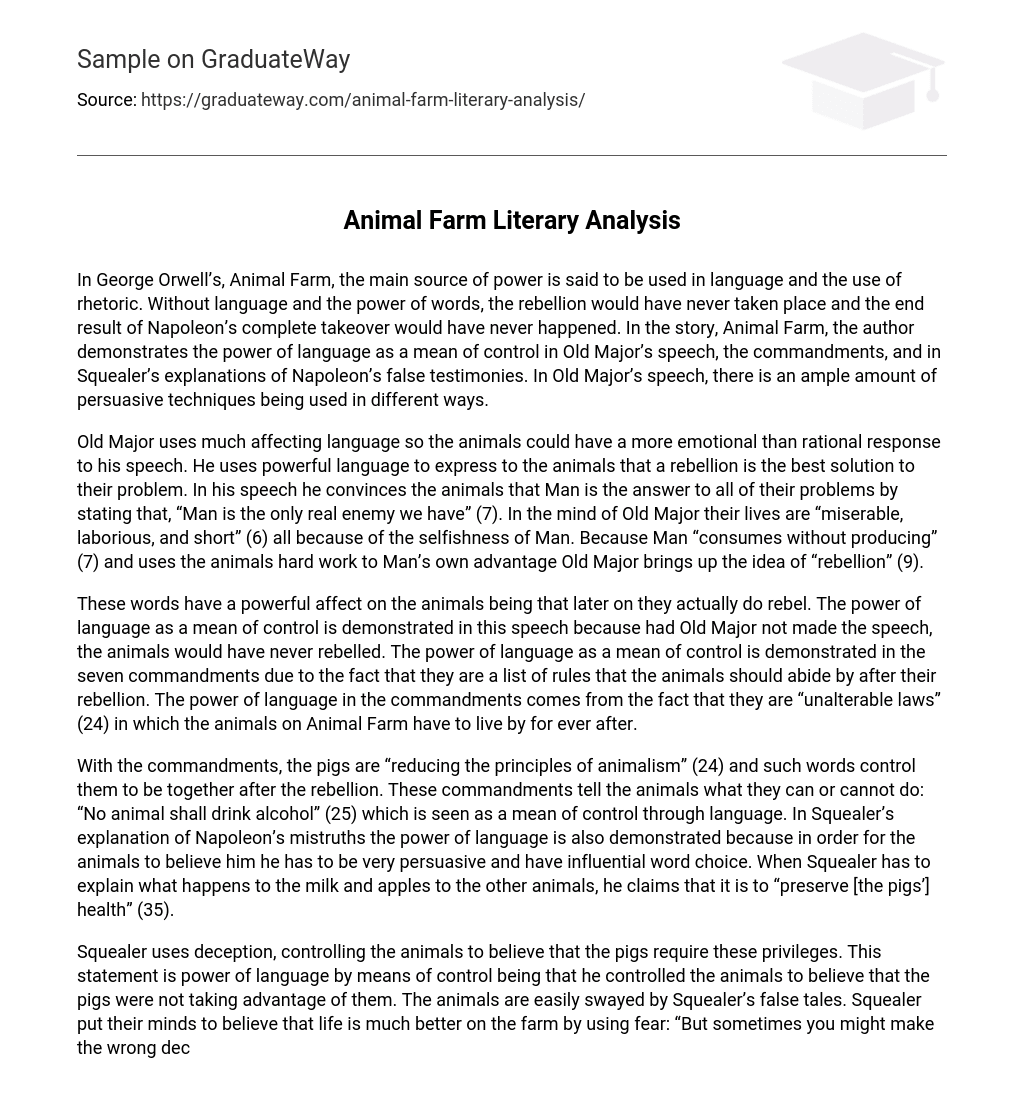In Animal Farm by George Orwell, the primary source of power is language and rhetoric. Without the use of words, the rebellion would not have occurred and Napoleon’s complete takeover would never have happened. Throughout the story, the author showcases the control that language possesses through Old Major’s speech, the commandments, and Squealer’s explanations of Napoleon’s deceitful actions. Old Major’s speech employs various persuasive techniques.
Old Major seeks to elicit an emotional rather than rational response from the animals through his use of impactful language. He employs powerful rhetoric to persuade the animals that a rebellion is the optimal solution to their predicament. Central to his argument is the notion that Man represents their sole adversary, asserting that “Man is the only real enemy we have” (7). Old Major contends that the animals suffer a wretched existence, characterized by toil and brevity, primarily due to Man’s self-centeredness (6). By exploiting the animals’ labor without contributing anything in return, Man stimulates Old Major’s proposition of “rebellion” (9).
The animals are greatly influenced by these words, which eventually lead them to rebel. The speech given by Old Major plays a crucial role in demonstrating the power of language as a form of control. Without this speech, the animals would never have taken the step to rebel. The power of language is further evident in the seven commandments, as they serve as a set of rules that the animals must follow after the rebellion. The commandments have power because they are considered “unalterable laws” (24) that the animals on Animal Farm must abide by for eternity.
The pigs, by instituting the commandments, effectively enforce the basic principles of animalism (24), using language as a means of control. These commandments dictate the animals’ actions and restrictions, as exemplified by the prohibition against alcohol consumption (25). The pigs also demonstrate the power of language through Squealer, who skillfully persuades and influences the other animals with his explanations of Napoleon’s falsehoods. Additionally, when justifying the consumption of milk and apples exclusively by the pigs, Squealer claims it is to uphold their health (35).
Squealer manipulates the animals to believe that the pigs need these privileges, highlighting the power of language to control. By convincing them that the pigs are not exploiting them, Squealer easily influences the animals with his deceitful stories. Through fear tactics, he convinces them that life on the farm is actually better, using the example of following Snowball and his impractical ideas of building windmills.
Squealer uses language and the power of words to control the animals. The profound influence of language is a prominent theme in this story, as it dictates the animals’ actions and behaviors and shapes the events that occur on the farm. Orwell showcases the power of language through speeches, commandments, and Squealer’s explanations to the other animals.





